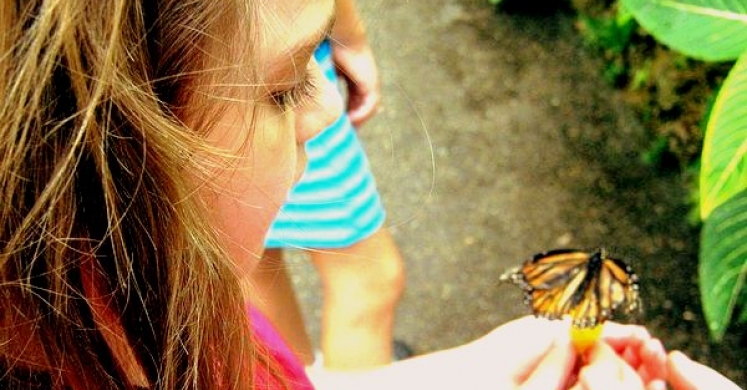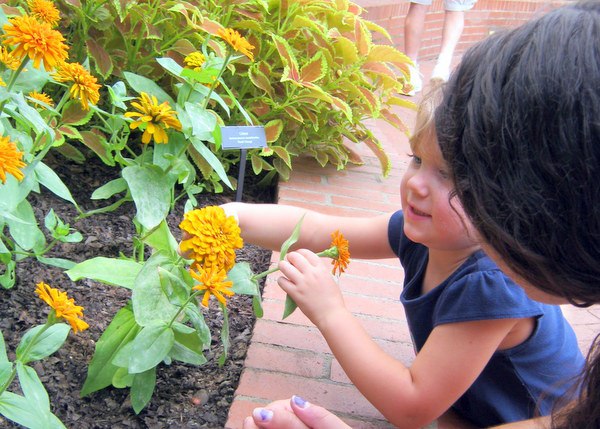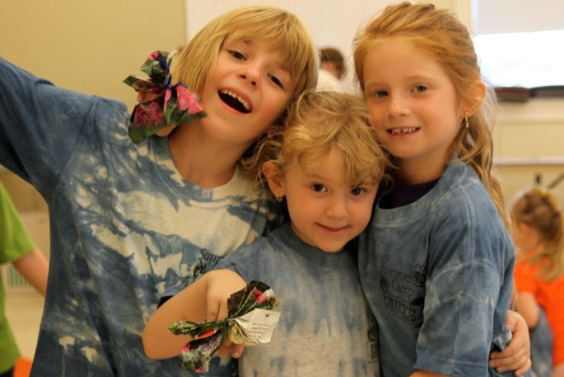Blog

The Importance of Kindness: Teaching Empathy Through Interaction with Nature
Everyone wants to be liked. There is an inherent human need to feel like an accepted member of a group. That is why many of us join clubs and professional organizations. We all feel our best when we think we are liked for who we are; it makes us happy. However, if the number of books on happiness research are any indication, we are all striving to be happier. This can be especially difficult for children, who are learning to navigate the social landscape as they go. Fortunately, there is new research from the Krasnow Institute for Advanced Study at George Mason University that suggests the best way for children to feel liked and accepted by their peers, to feel happy, is through practicing kindness.
A sense of empathy, or the ability to put oneself into the shoes of another, is the basis for kindness; if a person is empathetic, he is able to read a situation and put the needs of others above his own. Prompting people to engage in pro-social behaviors, such as helping others, increases feelings of well-being; conversely, people who are happy are much more likely to help others. In an experiment conducted in 19 classrooms in Vancouver, 9- to 11-year olds were instructed to perform three acts of kindness per week over the course of 4 weeks. A control group of students was asked to visit three places in the same time frame. Students in both groups showed improved feelings of well-being, but students who performed acts of kindness experienced greater peer acceptance than students from the control group. In essence, those students who were kinder and more empathetic to others were more popular and well-liked.

With the high incidence of bullying in schools, as well as spikes in depression and anxiety in students, this is an idea worth considering. Peer acceptance is an important goal, as it increases a sense of well-being. Empathy is not only an essential social skill, but an academic one; research shows that successful learners are not only knowledgeable, but also empathetic. Successful students not only exceed in the classroom, but in the community. The ability to be empathetic is found naturally in all of us, but requires nurturing to be properly developed. One way to teach these skills is through engagement with nature.
Children often have a natural affinity with the natural world, especially animals. Animals are a constant source of wonder for children, baby animals in particular; children naturally feel emotionally invested in animals. This fact is well-known in the medical community; there are a growing number of pet and equine therapy programs for children who are the victims of abuse or who have mental illness. Owning a pet, volunteering at an animal shelter or caring for a class pet are all ways that children can bond directly with animals. The bond that forms between child and animal has been shown to increase social competence and sense of well-being. As a child cares for and nurtures an animal, he or she develops a sense of empathy, which in turn promotes pro-social behaviors towards other people.
Another way to create a sense of empathy is through creating a sense of place. Whether it is a backyard or a local park, allowing children the time and freedom to explore, play in and care for a green space will create an affinity with the area. Research shows that those children with a sense of place are also more likely to turn their love of one place into a love for all of nature; this creates a sense of empathy with the natural world. Even caring for plants, for instance in the form of gardening, is beneficial. Spending time outside with trusted adults and watching them demonstrate their own care for nature helps to form a child’s sense of stewardship for the plants and animals within it.
Among those plants and animals are people, which are surely also part of nature. As children learn to treat the world around them with respect and care, so they will also treat each other. Caring for each other is an important part of any community. The more able children are to act with kindness, the more successful and happy they will become.

The above photos were taken by Science Education Staff and interns.

